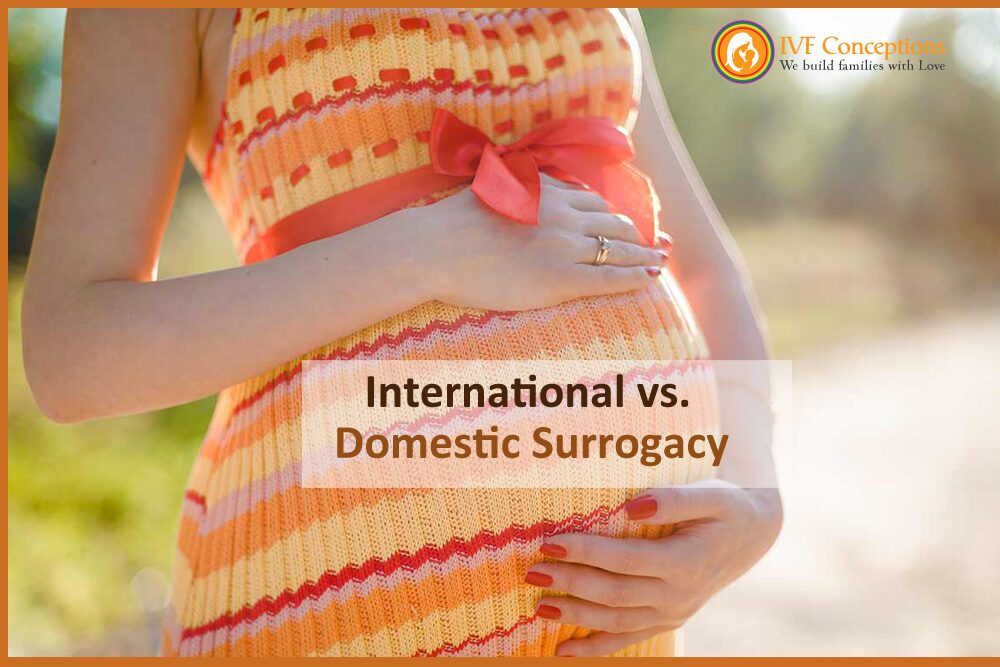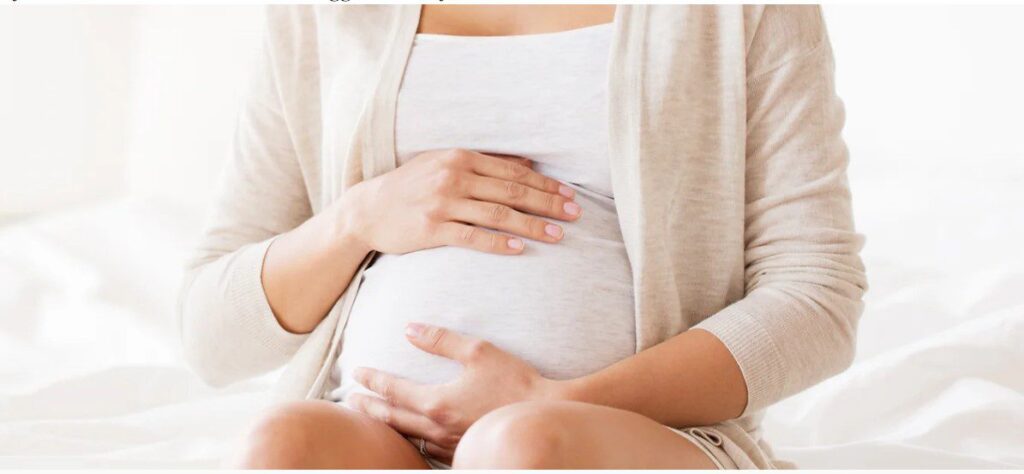Best Age to Get Pregnant: Unlock Your Perfect Pregnancy Time


The right age to get pregnant is in the mid-twentieth to mid-thirties in women. In today’s world, couples are fortunate to have a range of options when it comes to planning their family. With the advancement of contraception and reproductive technologies, the decision of when to start a family has become more flexible.
However, understanding the impact of age on fertility is crucial for making informed choices. So, what is the best age for women to get pregnant? Want to know more, scroll down and read about it!
Fertility is the ability of a woman to bear a child safely. In some cases, the pregnancy can occur naturally while in some cases, the couples may have to take the help of Assisted Reproduction Technology (ART) to get pregnant.
Various factors may influence your fertility like your emotional health, physical health, and kind of lifestyle. One such factor that affects fertility is your age. Age plays a very important role in the fertility of a couple, especially women.
Get in touch for FREE SURROGACY CONSULTING:
Mobile: +91-8800481100 ( WhatsApp, Line, Viber)
Email: neelam@ivfconceptions.com
How does age affect fertility in women?
Age is the key factor in the fertility of a woman. A woman is born in her life with all the eggs she would have. Her egg’s age, quality, and quantity start to decline with age.
In the early, to mid-20s a woman has between a 25 and 30% chance every month of becoming pregnant. When a woman is in her early 30s and more after 35, fertility usually begins to diminish. By 40 years of age, pregnancy is around 5 percent in any monthly cycle.
Age also increases the risk of difficulty with pregnancy. From the age of 35 years, the chance of abnormality and chromosomes in the fetus increases.

 How does age affect fertility in men?
How does age affect fertility in men?
Male fertility normally begins with a decline in sperm production at about the age of 40 to 45 years. Increasing men’s age reduces the overall chances of pregnancy and increases the risk of fetal death and miscarriage.
Additional Guides for Surrogate Mother:
Find a Surrogate Mother With or Without an Agency
In Which Country I Find Low-Cost Surrogate Mothers (in 2023)?
How can I Find a Surrogate Without Agency
What is the Age Limit for Surrogate Mothers
How Much Does Surrogacy Cost Using Family Member
How to Start the Gestational Surrogacy Process? A step-by-step guide for Beginners
How Much Does Surrogacy Cost? Everything You Need To Know (in 2023)
So, what is the best age to get pregnant?
Table: Age and Chances of Pregnancy
| Age Range | Likelihood of Conceiving within 3 Months of Trying |
| 20s | ~20% |
| 30s | ~12% |
| 40s | ~7% |
(Note: The above table provides approximate probabilities and may vary based on individual factors.)
The best age to get pregnant is in the 20s
- This is the prime time for your pregnancy from a purely physical perspective — the earlier in your 20s the more quickly you can conceive. The irregular cycles that are common during your adolescence have abated, making ovulation more predictable. Furthermore, your eggs are young and stable and successful fertilization candidates.
- In your twenties, it is not only easier to become pregnant but also easier to be pregnant. A juvenile body can usually handle the additional burden during pregnancy on its bones, muscles, and back.
- During the 20s, the risk for complications associated with pregnancy is usually low, with a notable exception: hypertension or preeclampsia due to pregnancy. Preeclampsia is not related to age and generally occurs in the first pregnancy.
The best age to get pregnant is in the 30s
- Many women who are at the beginning or mid of their 30s, may feel professionally and personally that they have made great strides, making them more prepared emotionally.
- Your eggs have aged as well as you have been acquiring life experience — and now reveal maturity. The average woman is born with half a million eggs, but the most fragile are released first, which lets you grow older with the slugger specimens.
- But once you are pregnant, you will probably find that you can usually have the strength of a younger woman if you’re fit and safe.
- You have also a growing risk of pregnancy-related conditions, including gestational diabetes, although you are at a decent age at 35 years. Also, 35 years of age marks the start of pregnancy with high risk.
- Additionally, with the number of prior pregnancies or cesarean sections, there is a possibility that placental disease can develop near the cervix and lead to bleeding, which is why it is most severe in older women.
In the 40s
- It is the hardest decade for pregnancy from a medical point of view.
- You have run out of the highest quality eggs and made it more slowly than ever before. You’re left with eggs that have taken not only the longest time to address body releases but do not perform well during fertilization as well.
- Your menstrual cycles may well before menopause becomes more and more irregular, also compromising fertility.
- Even if you’re most likely to be pregnant now — a high-risk pregnancy itself — even without a medical procedure, you will carry multiples.
- Pregnancy could aggravate chronic conditions and early aging signs like steep sore joints, as well as aggravate varicose veins. Everything is magnified when you are pregnant at this age.
- Medical disorders are more common in women after 35 years of age, such as diabetes mellitus and high blood pressure. This may lead to complications of pregnancy such as preeclampsia and gestational diabetes.
- Your doctor can conduct additional tests and monitor for complications after the age 40.
- The plus point is you have greater financial stability and can concentrate more on maternity. You might have been patient and flexible through life experience.


So, when you should go and see a doctor?
If you are unable to get pregnant after these conditions you should immediately look for a fertility specialist –
- If you are under 35 and cannot get pregnant within one year of regular sex without any contraception measures used.
- If you do not get pregnant after the age of 35 within six months of regular sex and without any contraception measures used.
What are the options for treating infertility at a greater age?
There are many options to treat infertility at a greater age. These include ART techniques:
- IVF-ICSI
- IUI
- IVF with an egg donor
- Freeze your eggs at an early age so that you can conceive later on without any additional help.
- Third-party reproductive services like Egg donation and gestational surrogacy.
While IVF is the most common method used it is more expensive than IUI. Freezing of eggs can be done in two ways – slow freezing and fast freezing methods.
Navigating Fertility Challenges
If you’re facing fertility challenges, especially after the age of 35, seeking professional guidance is crucial. A fertility specialist can assess your situation and recommend appropriate interventions. Assisted reproductive technologies (ART) offer hope to individuals and couples dealing with age-related fertility declines. Techniques like in vitro fertilization (IVF) and egg stimulation can increase the odds of successful conception.
Exploring Egg Freezing
For those who wish to preserve their fertility for the future, egg freezing is a viable option. By freezing eggs during your peak reproductive years, you can ensure that healthy eggs are available when you’re ready to start a family. The process involves hormone stimulation, egg retrieval, freezing, and later, fertilization and implantation.
While freezing your eggs doesn’t guarantee pregnancy, it provides you with a valuable insurance policy against age-related fertility decline. This option is particularly relevant for women who anticipate delaying family planning until their late 30s or 40s.
Seeking Medical Help at the Right Time
If you’ve been trying to conceive without success, it’s advisable to seek medical assistance. If you’re under the age of 35, consider seeing a fertility specialist after a year of trying. For those over the age of 35, consulting a specialist within six months is recommended. Couples with genetic diseases or a history of miscarriages should also seek professional guidance.

 Conclusion
Conclusion
Ultimately, the decision to start a family should be based on your unique circumstances and preferences.
While age plays a significant role in fertility, it’s just one piece of the puzzle. It’s important to assess your readiness for parenthood, both emotionally and financially.
If you choose to delay, stay informed about potential health considerations that may arise with age.
In conclusion, the optimal timing for pregnancy is a complex blend of biology, personal aspirations, and medical guidance. With the right support and information, parenthood can be a fulfilling journey, regardless of the age at which you embark upon it.
If you’d like to learn more about IVF, Egg Donation, or surrogacy services globally, check out the rest of our website: IVF Conceptions. We offer legally secure and affordable surrogacy consulting services for FREE.
Get in touch for FREE SURROGACY CONSULTING:
Mobile: +91-8800481100 ( WhatsApp, Line, Viber)
Email: neelam@ivfconceptions.com


FAQs for Best Age to Get Pregnant
What is the ideal age for pregnancy?
deal Age for Pregnancy The optimal age for pregnancy varies widely, contingent upon individual circumstances. While age plays a role, personal readiness, emotional preparedness, and financial stability collectively shape this timeline.
Is there a perfect time to conceive?
The Quest for the Perfect Conception Time Unearthing the perfect time for conception is intricate. It hinges on a blend of age, aspirations, and life circumstances. Rather than a universal answer, it’s a blend of myriad factors.
What are the risks of getting pregnant after 35?
Risks of Pregnancy After 35 Pregnancy beyond age 35 introduces potential risks. Fertility declines, and the odds of miscarriage and genetic anomalies escalate. Vigilant medical oversight is pivotal to mitigating these challenges.
Can fertility treatments affect the best age for pregnancy?
Fertility Treatments and Timing Fertility treatments can alter the concept of an ideal pregnancy age. Techniques like IVF offer hope, yet their efficacy wanes with age-related fertility decline.
How does maternal age impact pregnancy outcomes?
Impact of Maternal Age on Pregnancy Outcomes Maternal age profoundly influences pregnancy outcomes. As age advances, complications like gestational diabetes and high blood pressure become more prevalent. Close medical attention becomes indispensable to ensure a healthy pregnancy.